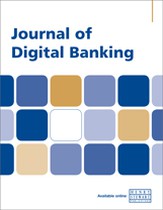Central bank digital currencies: From design to issuance and distribution — A case study of China’s sovereign digital currency
Abstract
There has been an increasing volume of research and discussion on central bank digital currencies (CBDCs) over the last four to five years, but no central bank of a sovereign country has been able to launch its national digital currency on a large scale. This paper uses China’s national digital currency (digital currency electronic payment, DCEP) as a case study to explore the growing pains of launching a new digital currency. Our findings reveal that central banks need to design CBDCs with an eye to not only technological innovations but also business values and priorities that underpin monetary policies and operations of their country, together with effective circulation of money flows in the economy. This paper proposes three innovations: first, it shows the difference between digital wallets and bank accounts and sets different real-name authentication requirements for the respective users. Second, it suggests replacing the existing ‘know your customer’ with a ‘know your coin’, thus protecting user privacy and commercial viability while satisfying the Anti-Money Laundering/Combatting the Financing of Terrorism (AML/CFT) requirements. Third, a 1+M+N operating mechanism is recommended to substitute DCEP’s existing two-tier operating mechanism, and the justification is provided.
The full article is available to subscribers to the journal.
Author's Biography
Hui Gong Dr Hui (Hugo) Gong is a lecturer in FinTech at the Westminster Business School. His research interests include algorithmic trading and high-frequency trading, Blockchain, cryptocurrencies and artificial intelligence. Before joining the University of Westminster, Dr Gong received his doctorate in financial mathematics at University College London and worked on quantitative investment and FinTech-related projects for investment banks and hedge funds in London. He was also a special adviser to APPG Blockchain, a researcher at UCL Centre for Blockchain Technologies (UCL CBT), specialised in cryptocurrencies and associated risks of cryptocurrency trading. Dr Gong is also the founder of China-UK Blockchain Association, which is a bridge that connects Chinese Fintech entrepreneurs, investors, and experts with the UK Fintech community.
Harry Thapar Professor Harry Thapar is the Head of School of Finance and Accounting at the University of Westminster. He is a Chartered Fellow of the Chartered Institute for Securities and Investment (Chartered FCSI), Fellow of the Institute of Directors and a Fellow of the Higher Education Academy. He has acquired over 30 years of experience in a number of City of London Institutions and as an academic in higher education institutions (HEIs) in the UK. Professor Thapar has held senior management and leadership positions in HEIs and the financial services sectors. He teaches in specialist master’s and MBA programmes in finance and lectures on artificial intelligence and machine learning (ML) applications in finance, capital markets trading, fixed income analysis, derivatives and risk in fund management. He has authored workbooks on investment, risk and taxation and portfolio construction theory. Professor Thapar’s research interests are in the emerging areas of FinTech and ML applications in risk and investment fund management.
Ann Thapar is a principal lecturer at Westminster Business School with over 20 years’ experience in academia, industry and consultancy practice. She has an MBA from City University and is a senior fellow of Higher Education. She has taught mainly Business Analysis, Data Science and Statistics in undergraduate, postgraduate, MBA and professional business courses at various universities. Currently, Ms Thapar is the course leader for the master’s degree programme MSc FinTech with Business Analytics. In addition, she is engaged in a broad range of academic and administrative roles, including Director of Employability, Partnership Development Researcher, member of the university’s Campus Academic Standard Group, Business Development leader and course leader of large undergraduate courses.
